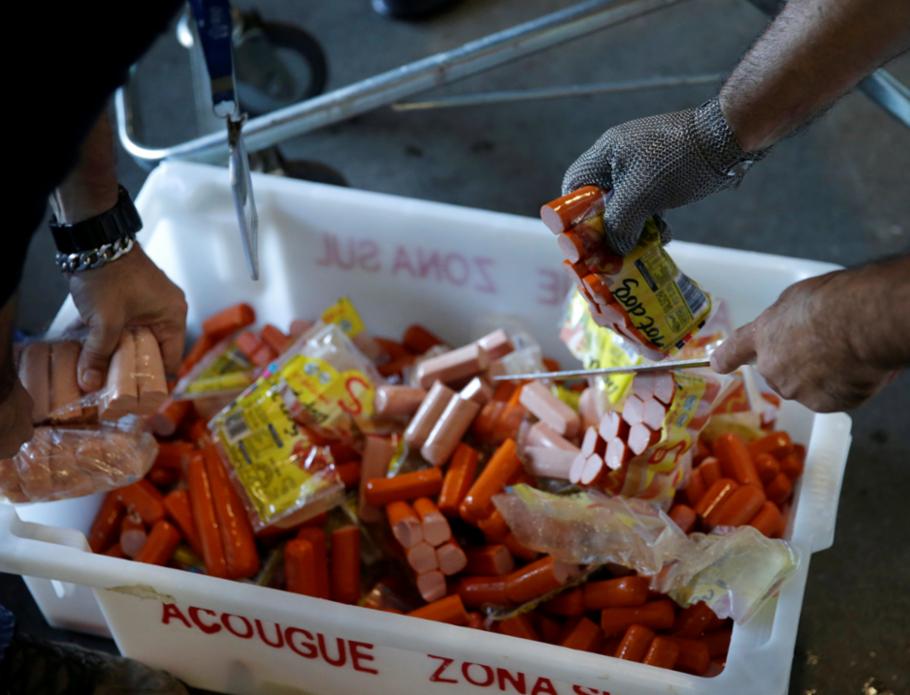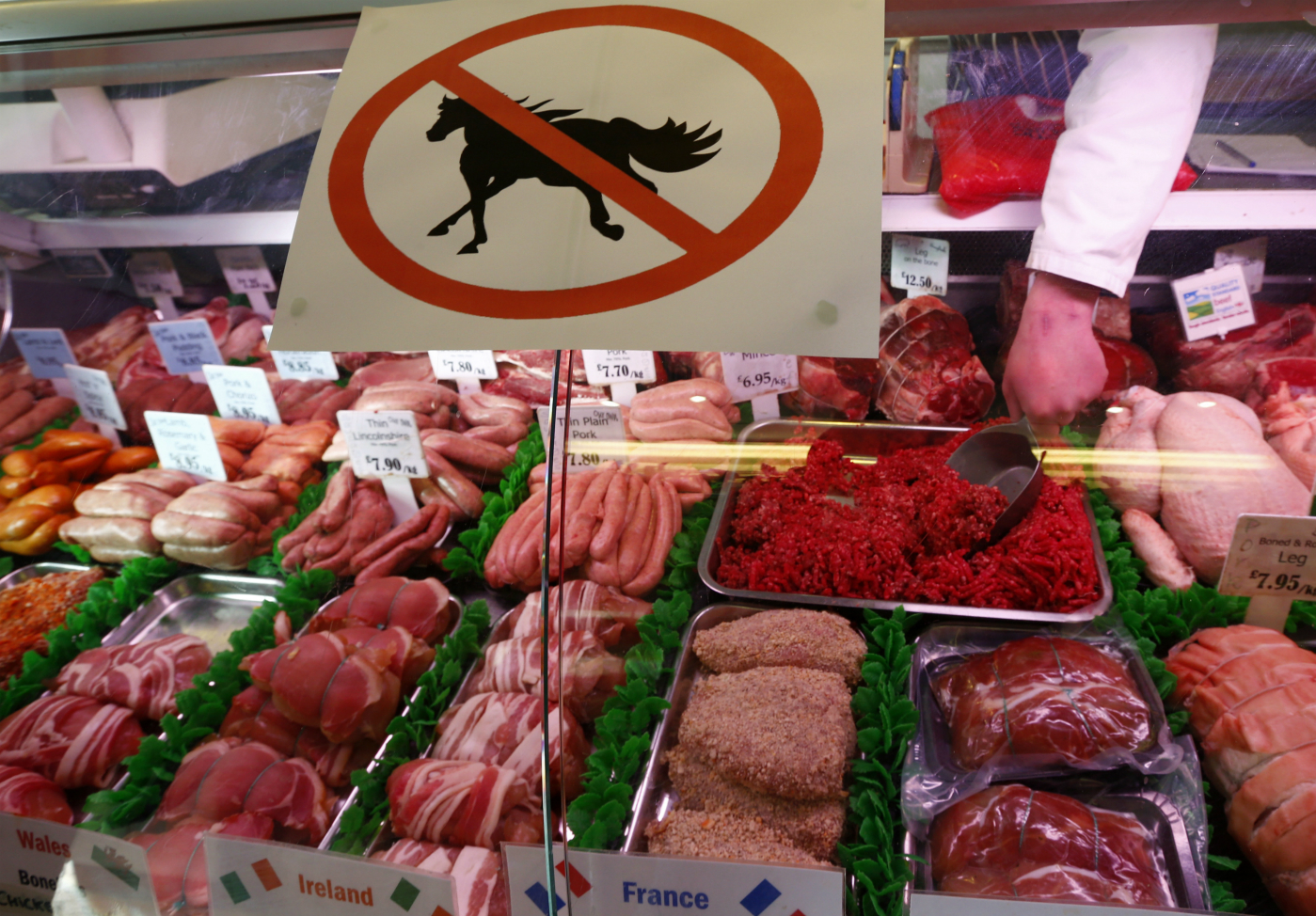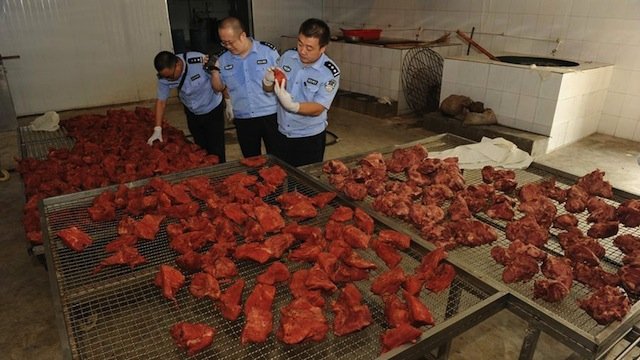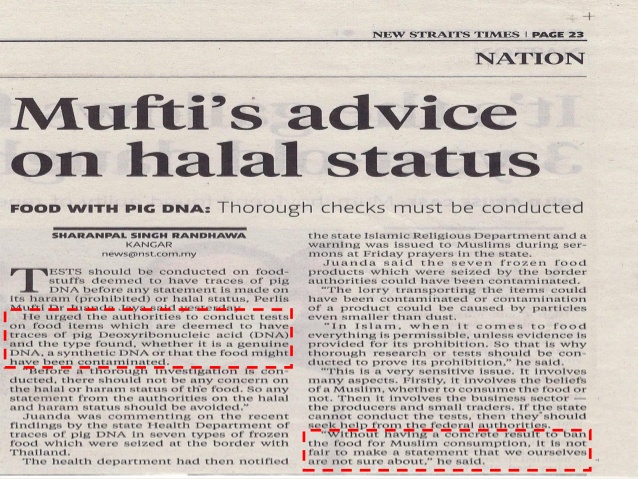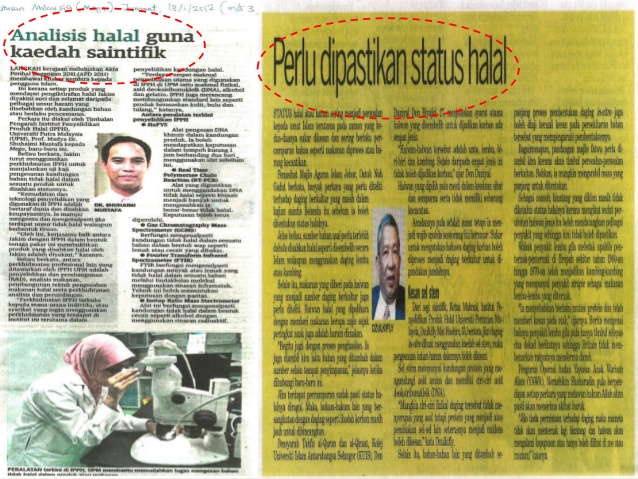Food Fraud and the Importance of Educated Consumer towards Advancing in Halal Standards
26 May 2017
Current investigation into alleged sanitary fraud and corruption in Brazil’s top halal beef exporters had once again thrown a spotlight on the issue of halal food fraud. With global value of certified halal food and beverage industry estimated at $ 415 billion in 2015, more often than not this issue of halal food fraud is motivated by greed and desire to maximize profit2. Below is the recollection of global incidents of fraud that shook the confidence of halal consumers:
1. Brazil Meat Scandal
Photo: Members of the Public Health Surveillance Agency collect sausages to analyse in their laboratory, at a supermarket in Rio de Janeiro, Brazil, March 20, 2017. REUTERS/Ricardo Moraes (Labadi.S, 2017)
- Recent crackdown by Brazil’s Federal Police through “Operation Weak Flesh” involved top Brazil’s halal poultry exporters such as BRF and JBS.1
- Allegations include bribing regulators to overlook unsanitary practices such as processing rotten meat and shipping exports with traces of salmonella.3
- There was also evidence that meatpackers falsified documentation for exports to Europe, China and the Middle East3.
- BRF controls around 45% of the poultry market in Saudi Arabia, UAE, Kuwait, Qatar and Oman.1
- In total, Brazil exports $1.8 billion beef and $3.2 billion poultry to Organization of Islamic Countries (OIC) with majority to the Arab countries in Middle East3
2. Midamar
- In 2014, US-based Midamar Corp, a well-established major exporter and domestic supplier of meat and poultry, was found guilty for documents falsification and mislabeled of halal products sold to Malaysia and Indonesia.1
3. Horse Meat Scandal
Photo: Butcher Sean Basey works behind a “no horsemeat” sign at Bates Butchers in Market Harborough, central England, February 20, 2013. REUTERS/Darren Staples (Labadi.S, 2017)
- In 2013, outrage broke out in several European countries when beef products at fast food restaurant, Burger King and some major grocery chains, were found to be adulterated with horse meat. Further testing also revealed pork DNA in many of the samples.1
- While in UK, halal chicken sausages and minced beef sold to school children were found to be contaminated with pork DNA.1
4. Shaanxi’s Meat Fraud
Photo: Muslims in China are livid after being fed Pork as Halal beef (Eat-Halal, 2014)
- In 2013, Muslims in China were furious when it was discovered that over 20 tons of pork were being offered off as halal beef. The pork was treated with paraffin wax and industrial salts to make it look like beef4.
It is clear that the issue of halal food fraud is a global issue and it keeps happening since years ago. It may eventually affect halal consumer in any parts of the world due to the complex and intra-related food supply chain system.
Tests on food items which are suspicious to have traces of pig DNA need to be conducted by scientific approach. Halal consumers, on the other hand, required to be empowered through knowledge and awareness in order to protect the integrity of halal food we consumed.
Know what’s in your food now with 7FoodPillar’s PorcineTrace Rapid Test Kits – designed for rapid screening tests for pork traces in food and on surface. Rapid result in only 15-30 minutes! There are 5 types of rapid test kits available, designed for different food matrices:
- Raw Meat
- Processed Meat/Canned Food
- Fat/Oil
- Gelatin
- Surface Swab
References:
- Labadi, S. (2017, March 22). Food fraud: The educated consumer is the best means to advance progress in halal standards. SalaamGetaway.Com. Retrieved May 26, 2017.
- Fuseini, A., Wotton, S. B., Knowles, T. G., & Hadley, P. J. (2017). Halal Meat Fraud and Safety Issues in the UK: a Review in the Context of the European Union. Food Ethics. doi:10.1007/s41055-017-0009-1
- Abdul Alim, E. (2017, March 18). UPDATE-Brazil food fraud scandal: How much halal exports are in the mix?Com. Retrieved May 25, 2017.
- Eat-Halal (2014). Muslims furious as 20 tons of Pork meat sold as halal beef. Retrieved May 26, 2017.

